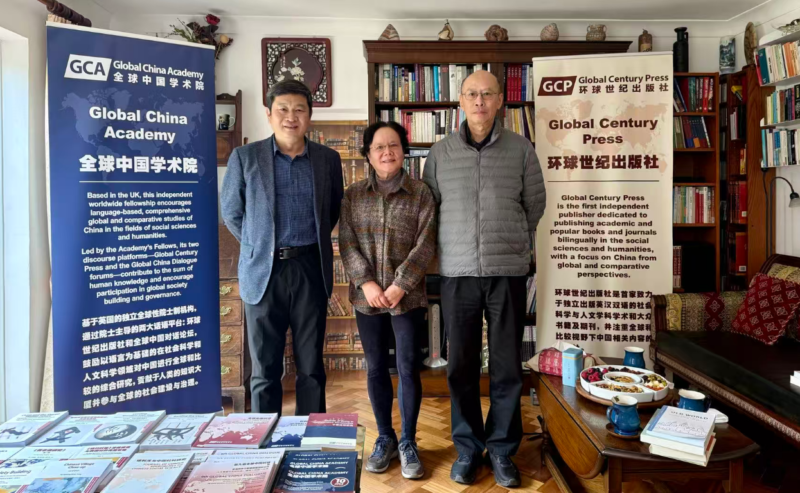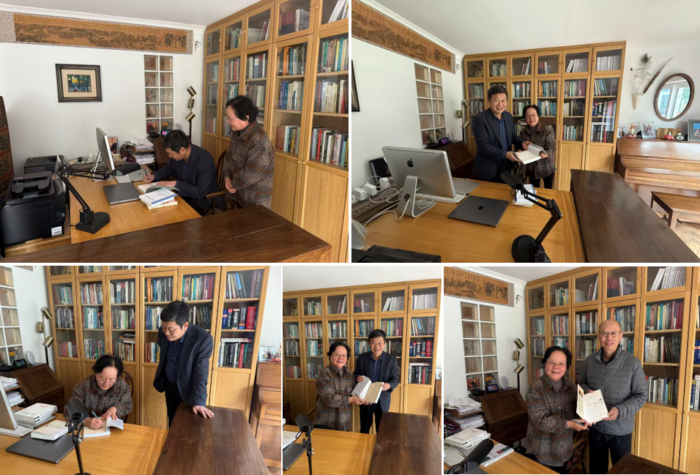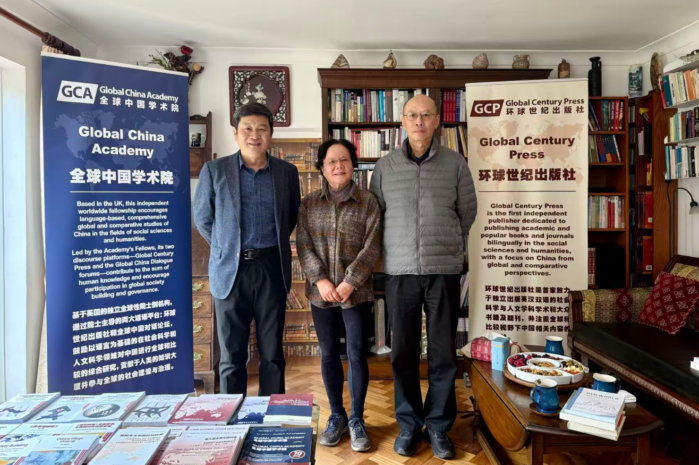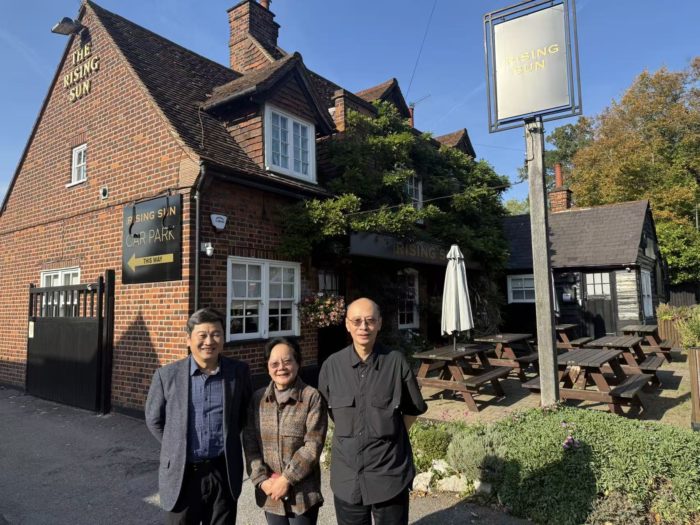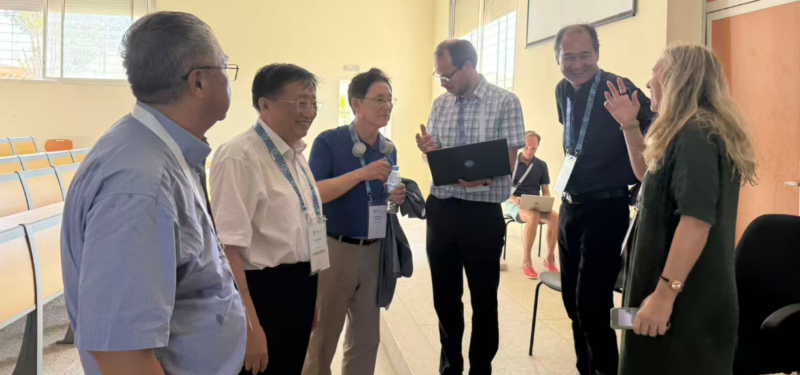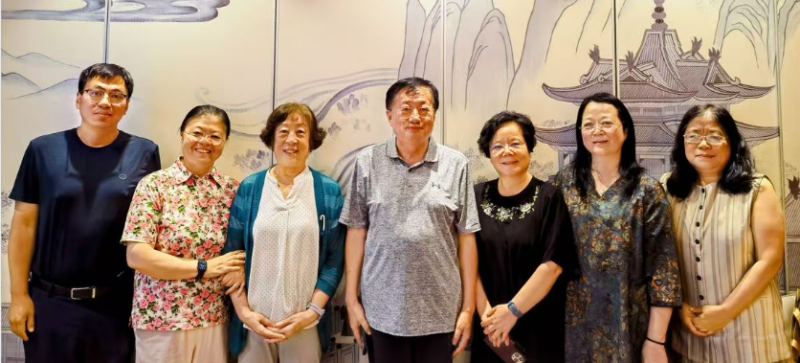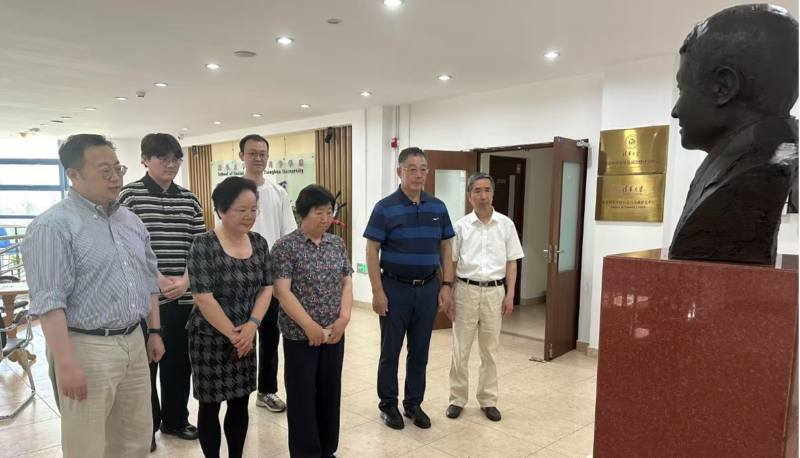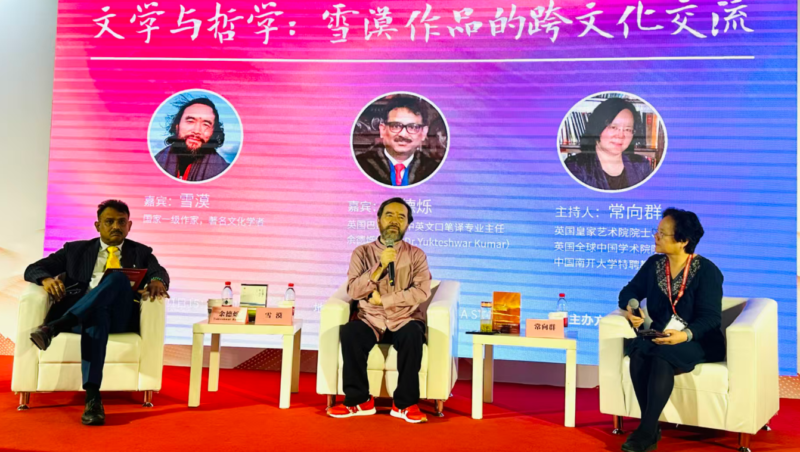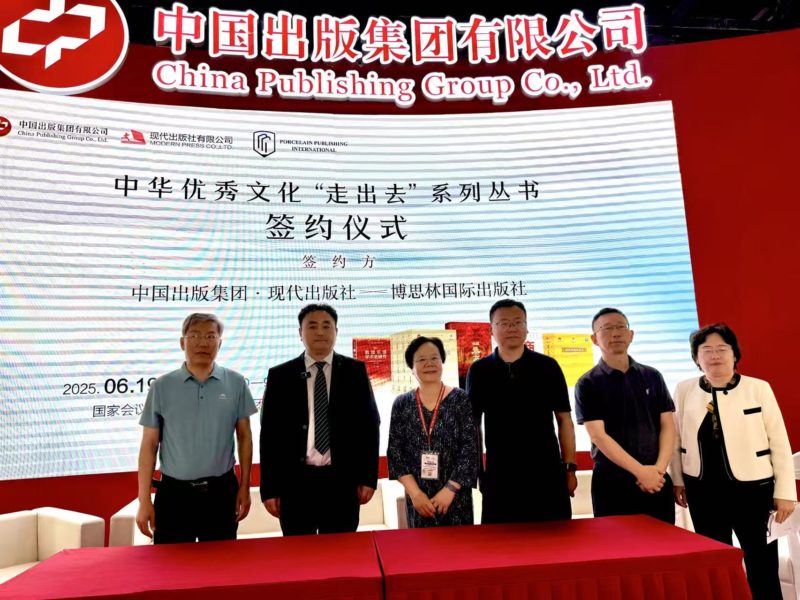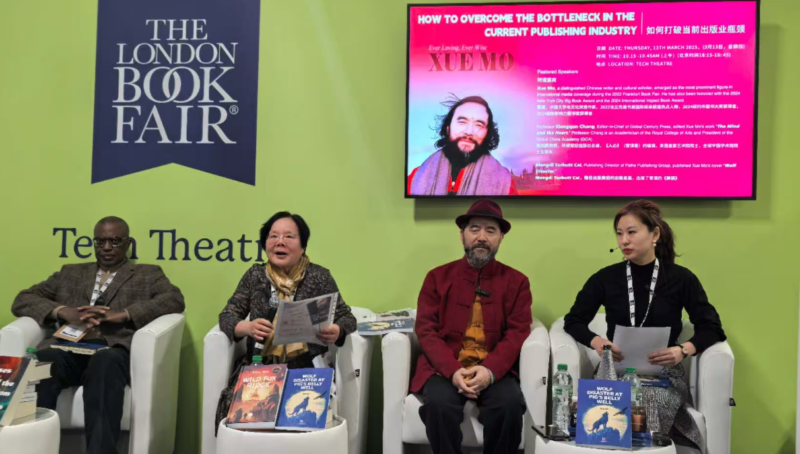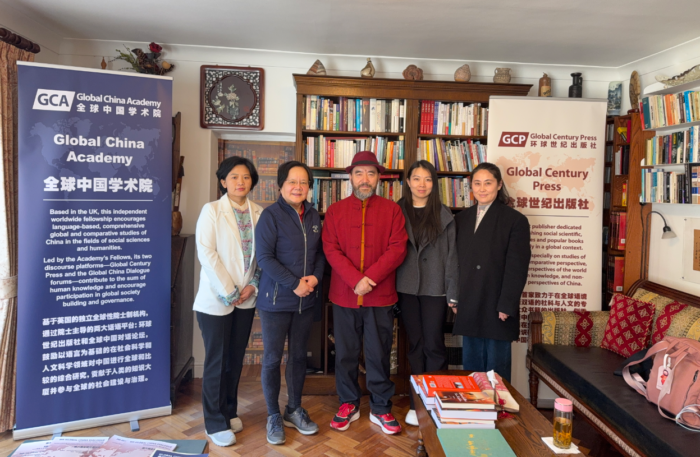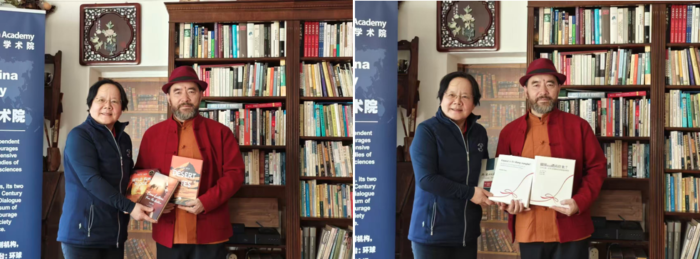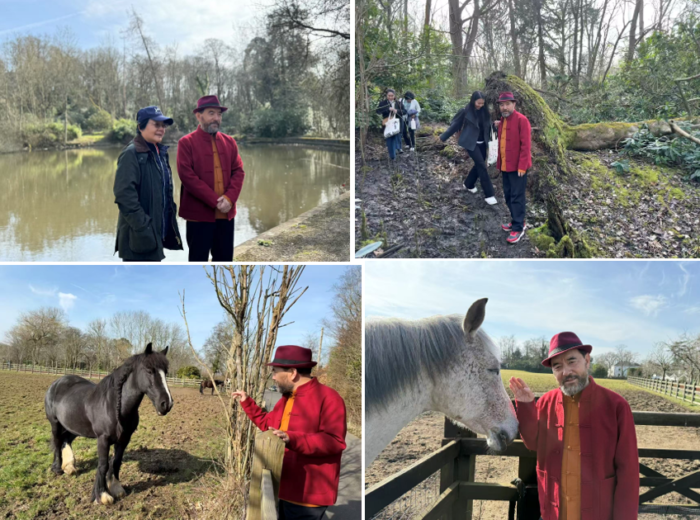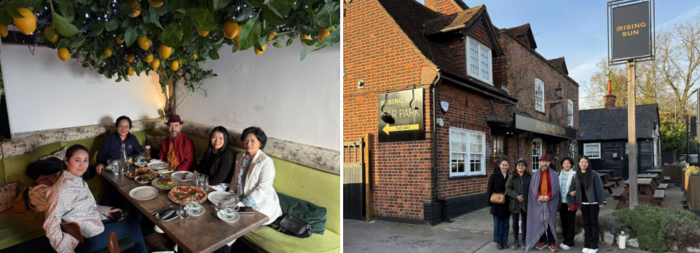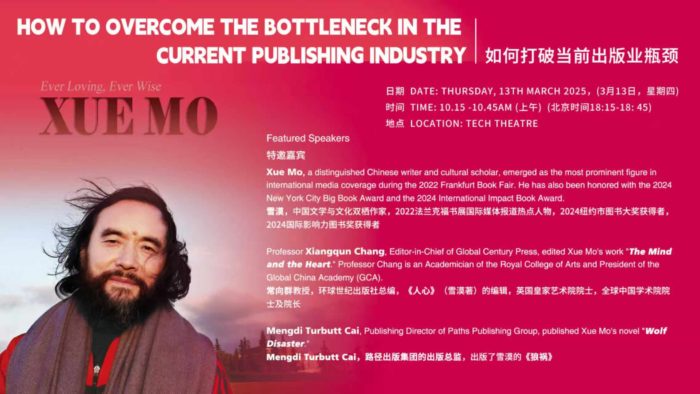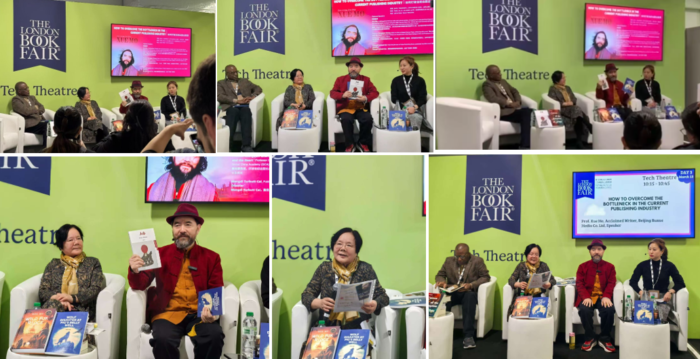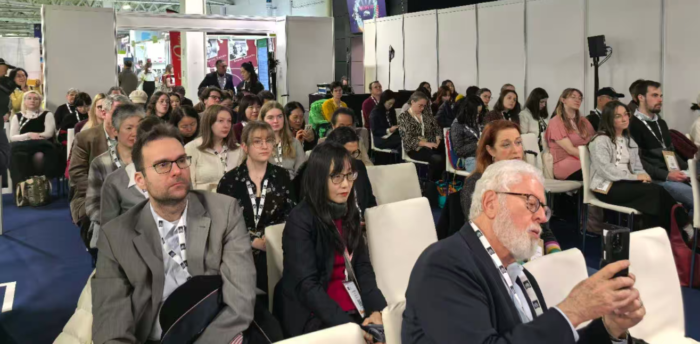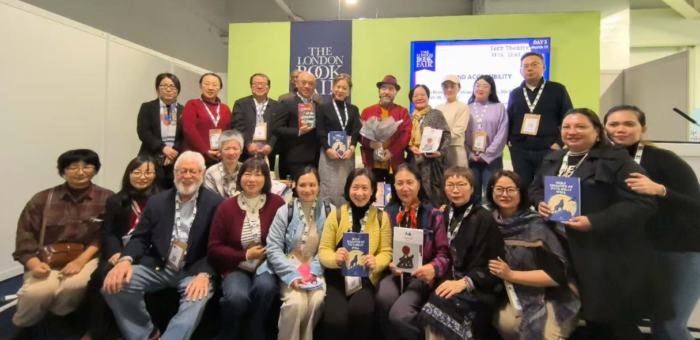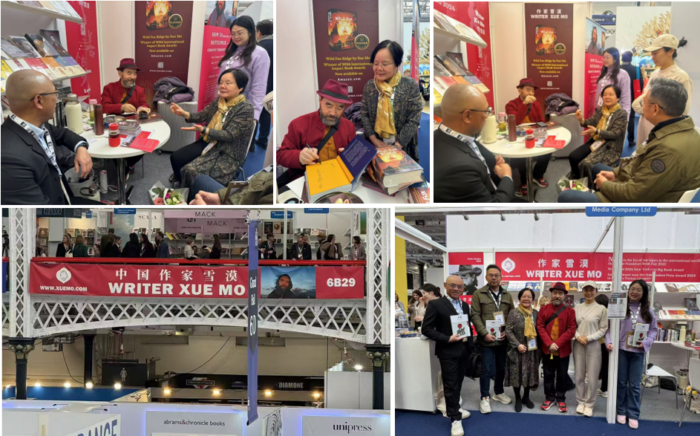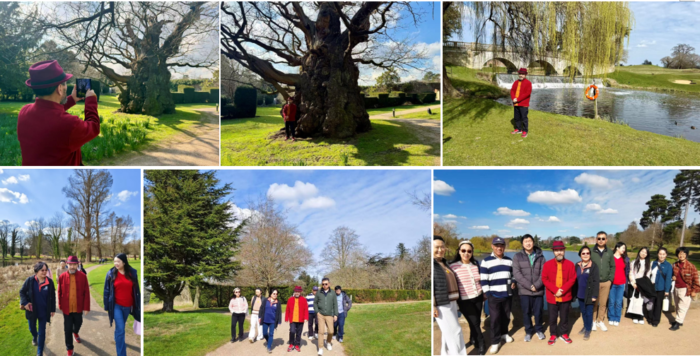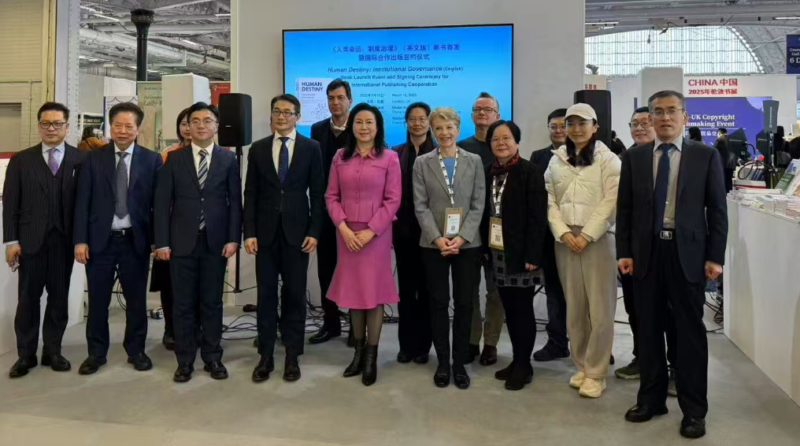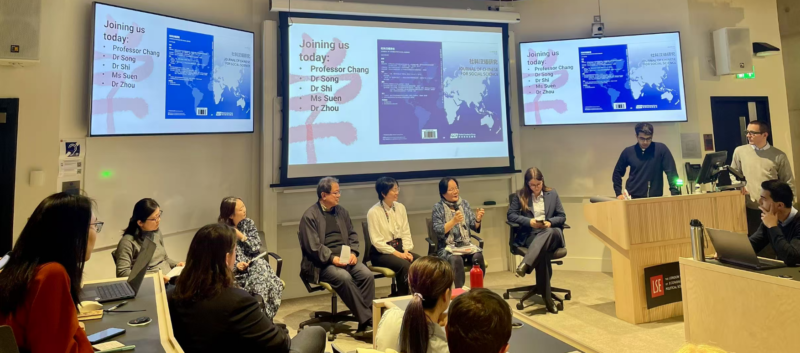
GCA President Professor Xiangqun Chang Participates in the Third China-Focus Student Research Forum at LSE
On 22 March 2025, Professor Xiangqun Chang, President of the Global China Academy (GCA) and Editor-in-Chief of Global Century Press, participated in the Third China-Focus Student Research Forum, hosted by the London School of Economics and Political Science (LSE). The forum was held from 1:00 PM to 4:00 PM at the LSE campus (MAR.1.04), marking the third consecutive year of this student-led, cross-institutional China studies initiative.
Following the first forum held at SOAS, University of London in May 2023, and the second forum hosted by King’s College London in June 2024, the third edition was organised by the LSE Language Centre, led by Dr Lijing Shi, Assistant Language Coordinator (Mandarin), with strong support from student volunteers.
Invited academic participants included:
- Dr Lianyi Song, Principal Teaching Fellow in the School of Languages, Cultures and Linguistics at SOAS and co-founding editor of the Journal of Chinese for Social Sciences (JCSS);
- Ms Lik Suen, Principal Lector at SOAS and editor of the JCSS;
- Dr Hongfen Zhou, Senior Lecturer in Chinese Language Education at King’s College London.
Students from LSE, King’s College London, and SOAS took part in the forum, continuing its tradition of bilingual presentations and interdisciplinary dialogue.
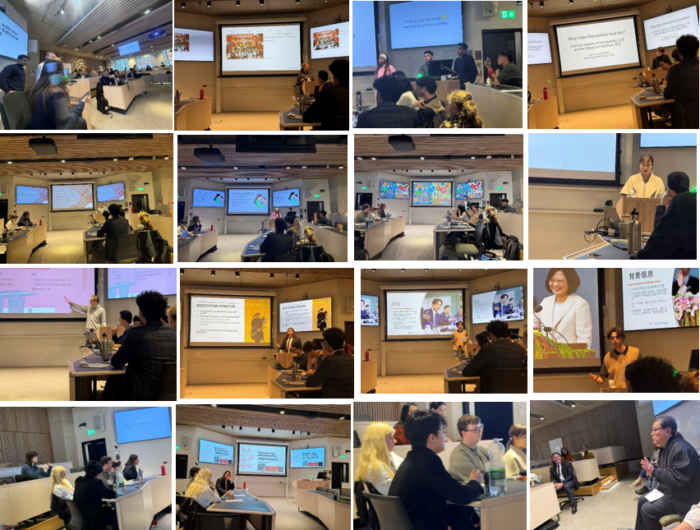
Photo 1 (displayed in random order, can be updated)
The forum featured 13 student presentations delivered in both Chinese and English, covering a wide range of China-related research topics. Each presentation was followed by a short Q&A session, with a scheduled break enabling informal discussion and exchange. In the last row, far right, Dr Lianyi Song is seen raising a question to a student presenter.
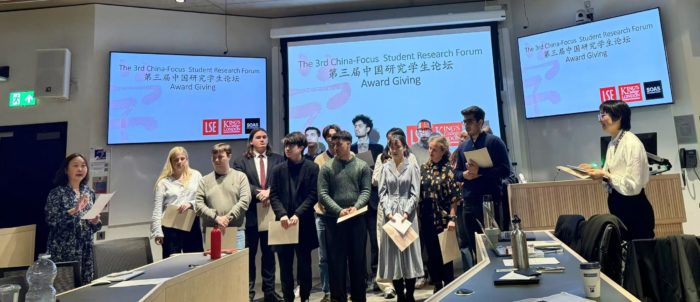
Photo 2 (Academic commentary and award presentation)
Ms Lik Suen (left), Principal Lector in the School of Languages, Cultures and Linguistics at SOAS, provided academic commentary on student presentations, offering professional and constructive feedback. The forum concluded with an award ceremony and networking session, strengthening academic connections among participants and institutions. Dr Lijing Shi (right) is shown presenting awards to student participants.
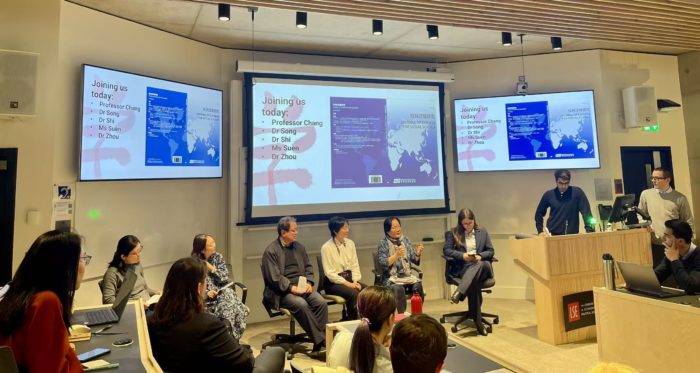
Photo 3 (Editorial exchange with JCSS)
A key highlight of the forum was the dedicated Q&A session with the editorial team of the Journal of Chinese for Social Sciences (JCSS). Professor Xiangqun Chang shared experience on academic writing, research development, and publication pathways, drawing on the Global China Academy’s long-term support for student and early-career scholars. This exchange further connected student research with formal academic publishing, reinforcing continuity within the scholarly community.
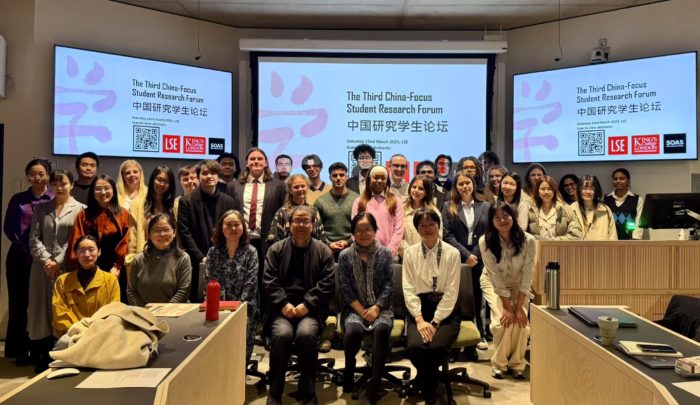
Photo 4 (Group photo)
The Third China-Focus Student Research Forum demonstrated the growing maturity of this student-led academic platform and the sustained collaboration between university language centres, student societies, and the Global China Academy. Through bilingual presentations, editorial engagement, and cross-institutional participation, the forum continues to nurture the next generation of China scholars and advance transcultural knowledge production and public academic practice.
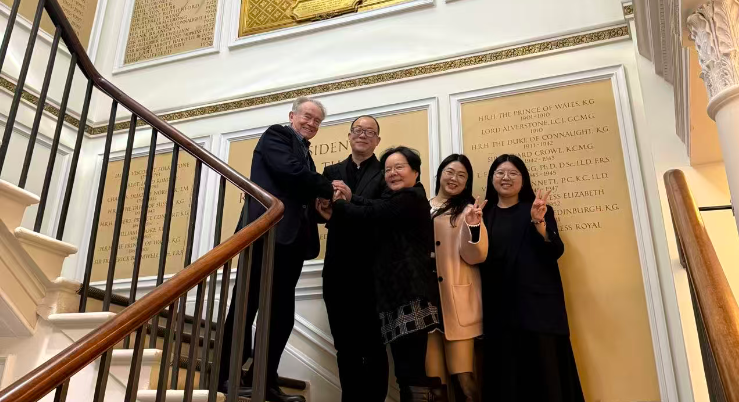
GCA President and Past Honorary President Welcome GCA Fellow Professor Li Linxue of Tongji University in London
During the five-day UK study visit on the built environment, on the afternoon of 4 March 2025, Professor Li Linxue, Fellow of the Global China Academy and Professor at Tongji University, met with Professor Xiangqun Chang, President of the Global China Academy, and Professor Martin Albrow, Past Honorary President of the Academy, at the Royal Society of Arts (RSA) in London. Their discussion focused on the mission of the Academy, ongoing academic initiatives, and potential directions for future collaboration.
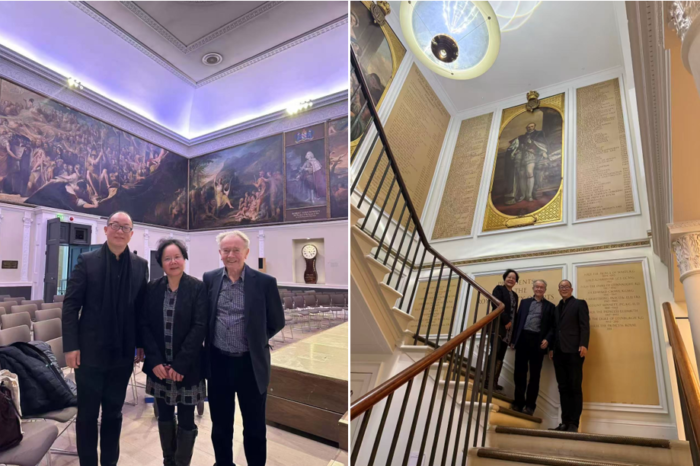
The meeting also included discussion of Professor Albrow’s newly published book, Integrity: The Rise of a Distinctive Western Idea and Its Destiny (诚信:一种独特的西方观念的形成及其命运). In the book, Albrow traces the historical development of integrity from ancient Greece and Rome, through Christianity, the Renaissance, and into modern society, showing how it evolved from an idea of value-based unity and adherence to external standards into a core ethical principle of public life. He argues that contemporary society is marked by a troubling paradox—while integrity is widely demanded, it is not necessarily a prerequisite for political success, resulting in what he calls a “politics of the integrity vacuum.” Albrow therefore calls for the renewal of integrity through dialogue with non-Western wisdom, in order to rebuild trust, reliability, and ethical foundations in public and social life.
Professor Li also introduced his architectural design philosophy and selected works. In 2001, he founded Atelier L+ (麟和建筑工作室), part of the Tongji Architectural Design and Research Institute (Group) Co., Ltd. The studio is an architect-led team grounded in architectural practice and urban research, employing “Nature–System–Construction” as its core methodological framework. Through this approach, the studio continuously explores architectural modernity and multi-scalar construction within the context of Chinese cities. Characterised by the integration of research and building practice, Atelier L+ emphasises the realisation of high-quality architecture under real-world conditions through full-process participation in design. To date, the studio has completed or is undertaking more than fifty public building projects, including urban landmarks, industrial heritage regeneration, and a wide range of educational, cultural, civic, and infrastructural complexes, establishing a distinct and influential position within contemporary Chinese architectural practice.
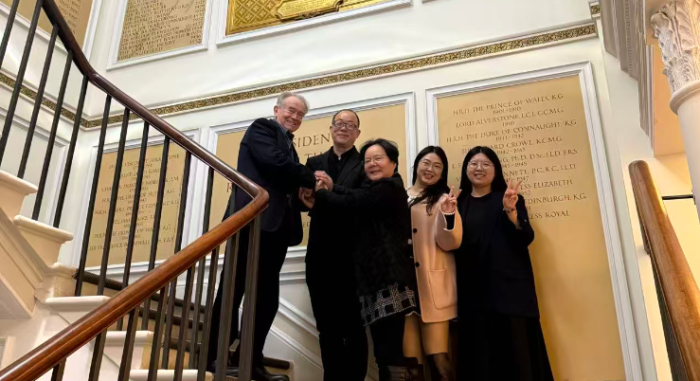
The feature image on this page captures a symbolic moment: the three scholars standing side by side, holding hands, representing trust, collaboration, and a shared scholarly community. Two of Professor Li’s colleagues, standing nearby, spontaneously responded to the camera with “V” gestures, conveying a relaxed, confident, and positive atmosphere of academic exchange. More than a group photograph, this gesture symbolises the organic emergence of a transcultural academic network at London as a global node of ideas—the joined hands representing long-term partnership and institutional commitment, while the “V” signs express openness, goodwill, and optimism for future collaboration. Set within the RSA, an institution renowned for public thought and social innovation, the image resonates naturally with the Academy’s commitment to transcultural dialogue, the co-production of knowledge, and scholarly friendship.
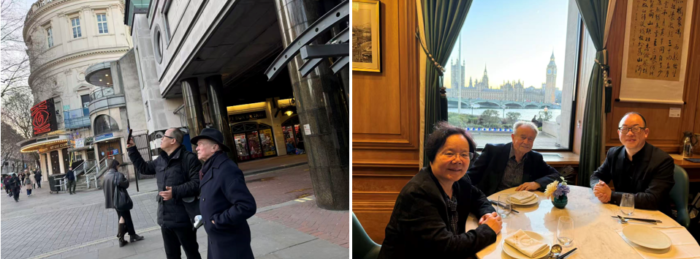
Afterwards, the three walked together through central London, with the cityscape becoming the backdrop for continuing academic exchange. The image on the left shows a street scene spontaneously photographed by Professor Li during the walk, capturing urban details as sources of architectural inspiration; the image on the right records their arrival at a riverside restaurant in County Hall on the South Bank of the Thames, with the river and the Houses of Parliament visible outside the window. Upon being seated, they took a group photograph while Big Ben and the Parliament building were still clearly visible across the river. As dinner progressed and night fell, the cityscape gradually faded into the London dusk, bringing this transcultural academic encounter to a symbolic close.
Selected Works by Professor Li Linxue
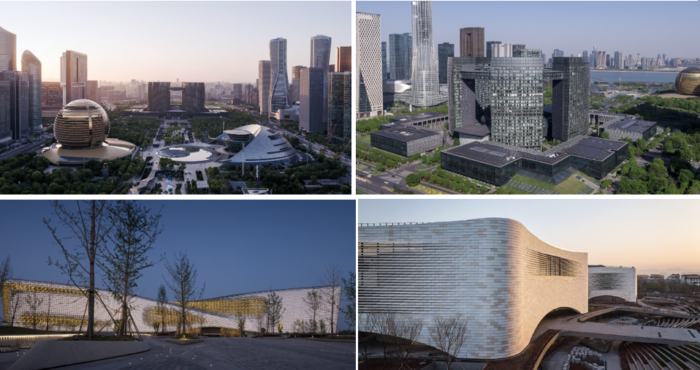
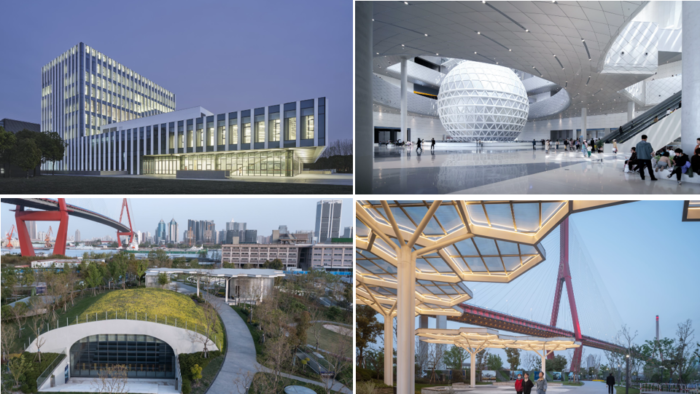
Among the eight projects shown above, the second from the left in the bottom row is the Tongji Yijia Building. Responding to the contemporary Chinese urban context through a clear and powerful modern architectural language, the building integrates function, space, and cultural expression through geometric façades, transparent glass interfaces, and abundant natural light. Its open and flexible interior spaces accommodate exhibitions, exchanges, meetings, and office use, while its emphasis on spatial adaptability and publicness encourages interaction and collaboration. In this building, a transcultural spatial practice takes form—where Chinese urban experience, global modern architectural language, and academic public life are translated and integrated within a single architectural framework. Through green landscaping, material selection, and sustainable strategies, the building further responds to environmental and real-world conditions, becoming a public platform that connects local experience with global contemporaneity, and embodies both cultural sensibility and contemporary spirit.
When Professor Li encountered the title of Martin Albrow’s new book, his spontaneous Chinese rendering was “integration.” This response was not a conceptual misreading, but rather an architect’s interpretation: how, in a highly differentiated contemporary world, values, institutions, and public life might be reconnected into a workable whole. While Albrow approaches integrity through the lens of intellectual history, questioning its meaning and crisis in public life, Li responds through architecture—by integrating different cultures, forms of knowledge, and practices in real space, enabling publicness to be built and experienced. The book and the buildings thus enter into a dialogue across disciplines, pointing toward a shared question: how trust, publicness, and reliable social order might be rebuilt in a complex and plural world.

